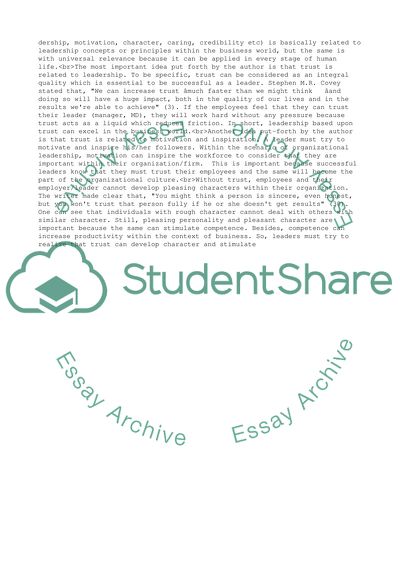Cite this document
(“The Speed Of Trust book review Report/ Example | Topics and Well Written Essays - 1250 words”, n.d.)
The Speed Of Trust book review Report/ Example | Topics and Well Written Essays - 1250 words. Retrieved from https://studentshare.org/management/1663702-the-speed-of-trust-book-review
The Speed Of Trust book review Report/ Example | Topics and Well Written Essays - 1250 words. Retrieved from https://studentshare.org/management/1663702-the-speed-of-trust-book-review
(The Speed Of Trust Book Review Report/ Example | Topics and Well Written Essays - 1250 Words)
The Speed Of Trust Book Review Report/ Example | Topics and Well Written Essays - 1250 Words. https://studentshare.org/management/1663702-the-speed-of-trust-book-review.
The Speed Of Trust Book Review Report/ Example | Topics and Well Written Essays - 1250 Words. https://studentshare.org/management/1663702-the-speed-of-trust-book-review.
“The Speed Of Trust Book Review Report/ Example | Topics and Well Written Essays - 1250 Words”, n.d. https://studentshare.org/management/1663702-the-speed-of-trust-book-review.


